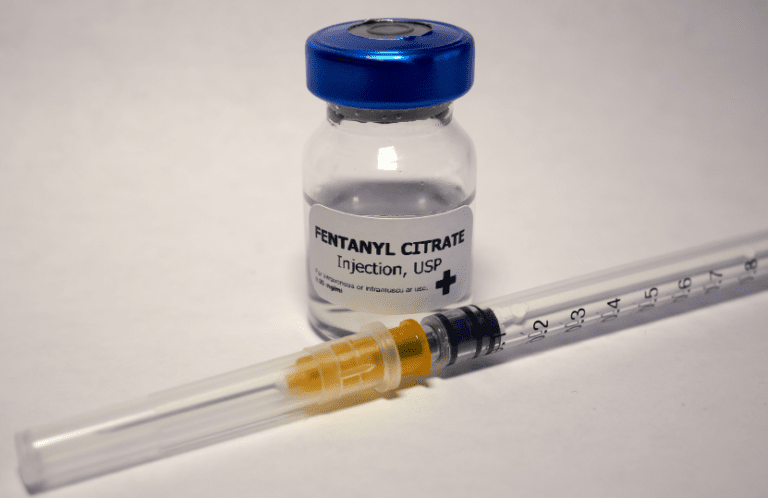Histrionic Personality Disorder: Understanding Amber Heard’s Diagnoses
In the midst of last month’s attention to actor Johnny Depp’s $50 million lawsuit against ex-wife Amber Heard, a psychological term entered the public lexicon: histrionic personality disorder. A clinical and forensic psychologist, Shannon Curry, conducted a psychological evaluation of Heard and testified in court regarding her diagnosis.
Testimonies from Curry and other clinical professionals deduced that Heard likely has histrionic personality disorder, in addition to borderline personality disorder and substance use disorder. But what is histrionic personality disorder, and how does it differ from the other, better-known mental health conditions Heard was diagnosed with?
What is Histrionic Personality Disorder?
Individuals with histrionic personality disorder (HPD) have an unsound sense of self-worth and are constantly consumed by unstable emotions. “Histrionic” refers to “dramatic or theatrical behavior.” An individual with HPD has an inaccurate view of themselves compared to how she really is and has intense feelings of affection and love.

To get someone’s attention, an individual with HPD might act giddily or inappropriately. They frequently don’t recognize the problems with their behavior and thinking. histrionic personality disorder falls into the “Cluster B” personality disorder type. If you have histrionic personality disorder, your emotional temper will fluctuate drastically and unpredictably. The most important aspect of histrionic personality disorder is exhibiting excessive, superficial emotionality and sexuality to attract attention. The following are common signs of HPD:
- Constantly seeking approval
- Depressed when not the center of attention
- Overly concerned with appearance
- Acting inappropriately or sexually for attention
- Have difficulty managing relationships
- Need for constant reassurance or gratification
- Overly dramatic and emotionally expressive
What Causes Histrionic Personality Disorder?
Histrionic personality disorder is among the least understood mental health conditions. Studies conducted on histrionic and other personality disorders have identified several factors that might histrionic personality disorder to develop:
- Trauma – Personality disorders may occur in adulthood as a result of the trauma experienced by a child, such as child abuse or the death of a family member.
- Genetic – Scientists believe there may be a genetic (inherited) link between histrionic personality disorder and genetics.
- Childhood home – Children who grow up in homes with uncontrolled, over-indulgent or inconsistent parenting styles are more likely to become histrionic personality disorder sufferers. In addition, parents who engage in erratic, unpredictable, volatile or unusual sexual behavior put their kids at risk for developing this condition. Some researchers think that parent-child conflicts cause people’s characteristic low self-esteem in HPD.
What is Borderline Personality Disorder?
BPD, or borderline personality disorder, is a mental illness that impacts how you think and feel about yourself and others, making it difficult to function in everyday life. Self-image problems, trouble regulating emotions and behavior, and unstable relationships are just a few of the issues individuals with BPD may have.
When you have BPD, you may not be able to tolerate being alone. On the other hand, inappropriate anger, impulsiveness, and frequent mood swings may drive others away, even though you want to be in loving and lasting relationships. BPD typically begins in young adulthood and improves with age.
People with borderline personality disorder have difficulties with self-esteem, social relationships, and behavioral patterns. Signs of BPD include:
- Extreme shifts in self-image
- Impulsive or risky behavior
- Feelings of emptiness
- Fear of abandonment
- Unstable relationships
- Mood swings
- Suicidal ideation
- Intense anger that results in physical violence
What Causes Borderline Personality Disorder?
The causes of borderline personality disorder continue to be researched. In addition to environmental factors, such as child abuse or neglect, a borderline personality disorder may be connected to the following factors:
Brain defect – Changes in certain areas of the brain involved in emotion regulation, impulsiveness, and aggression have been observed in some research. Moreover, certain brain chemicals that help regulate mood, such as serotonin, may not function properly.
Genetics – It is possible that personality disorders can be inherited or that they are strongly associated with other mental health issues in family members, according to some studies.

What is Substance Abuse Disorder?
A substance use disorder, commonly referred to as a SUD, is a mental disorder that renders someone incapable of controlling their use of substances, such as legal or illegal drugs, alcohol, or medicine. Addiction is the most severe form of SUDs. The symptoms of addiction can range from mild to severe, with addiction being the most severe.
Around half of individuals who suffer from a substance use disorder will also suffer from a co-existing mental illness, according to research. This can include anxiety disorders, depressive disorders, attention deficit hyperactivity disorder (ADHD), bipolar disorder, personality disorders, and schizophrenia, among others.
Signs of a substance use disorder include:
- Neglecting responsibilities
- Isolating yourself
- Change in mood and appearance
- Intense mood swings
- Intense urge to use the substance
- Stealing or borrowing money
- Being secretive
- Increased tolerance for drug
- Experiencing withdrawal symptoms if you abruptly stop use
What Causes a Substance Use Disorder?
The exact cause of substance use disorder is unknown. A person’s genes, the drug’s action, peer pressure, emotional distress, anxiety, depression, and environmental stress all play a part in causing it.
Many individuals who become addicted to drugs have post-traumatic stress disorder, attention deficit disorder, or other mental disorders in addition to it. A stressful or troubled lifestyle and poor self-esteem are also common. Children who grow up with parents who use substances are at an increased risk of developing a substance use disorder due to both environmental and genetic factors.
What Amber Heard’s Public Diagnosis Means
The ‘Johnny Depp v Amber Heard’ defamation case has made headlines for months, generating comments and tweets, with some dubbing it the ‘OJ Simpson trial of our generation.’ It was supposed to be a delicate situation, given the seriousness of the allegations of violence, abuse, and mental illness but it has turned into a circus as a result.
It is important to understand that individuals diagnosed with any of the aforementioned disorders are not inherently violent, calculating, or abusive. While we may never know the whole truth regarding Depp and Heard’s relationship, we, as the public, must recognize these disorders as illnesses and not simply traits of scorned ex-lovers.
The types of disorders Amber Heard was publicly diagnosed with should be identified and diagnosed by a qualified professional only. Even though these words are great for generating clicks, they can also cause a lot of damage. It’s critical for more people to be educated about mental illness symptoms and treatment options in order to improve the chances of detecting and treating them. Hopefully, the trial will boost people’s interest in obtaining accurate information on mental health disorders. By having open and honest discussions on mental health matters, everyone can heal.

Oasis Recovery is Here For You
Amber Heard being diagnosed with histrionic personality disorder, borderline personality disorder, and substance use disorder proves that anyone can be affected by addiction or mental health issues. If you or your loved one is in need of assistance, Oasis Recovery is here for you!
We encourage you to contact our team of professionals at Oasis Recovery to learn more about our wide array of mental health services and personalized rehabilitation programs. At Oasis Recovery, we believe recovery is always possible. Our specialists will work with you to devise a treatment plan that suits your needs. The following types of treatment are frequently offered:
- Detox referral
- Mental Health referral
- Intensive Outpatient Programs (IOP)
- Full-time Addiction Treatment on campus
- Aftercare Services
You no longer have to handle this alone. We are ready to assist you. Please contact us for more information about how our programs and services can help you get your life back on track









